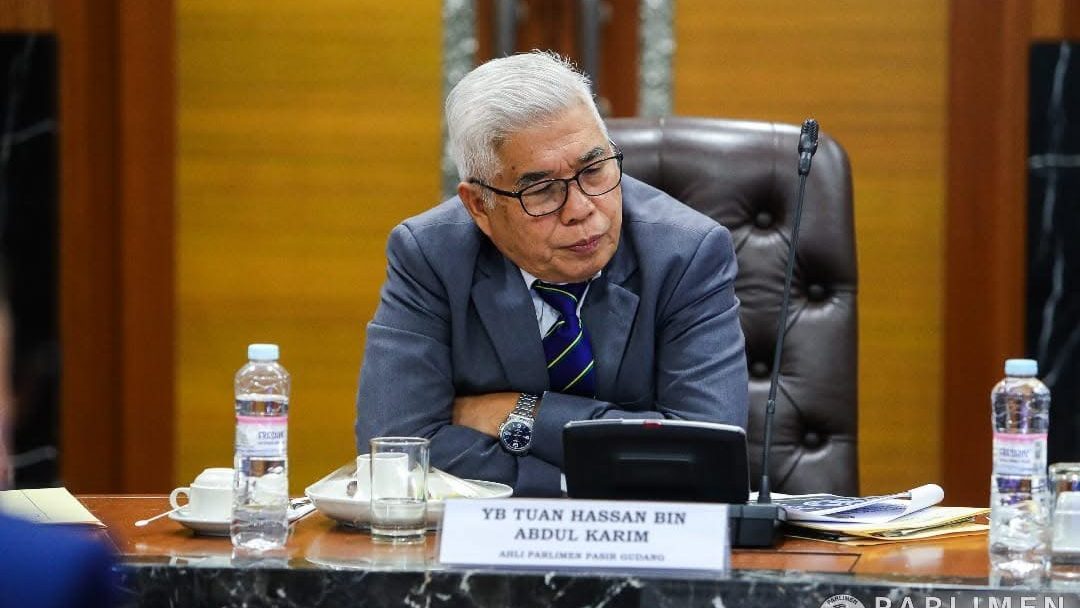MALAYSIA: Pasir Gudang MP Hassan Karim has expressed disappointment over Malaysia’s failure to improve its score in the 2024 Corruption Perceptions Index (CPI), attributing the stagnation to persistent corruption cases within key government agencies.
Despite the unity government prioritising the fight against corruption, Malaysia remained at 50 points and ranked 57th in Transparency International’s (TI) annual report, which was unchanged from the previous year. Hassan described this outcome as “disheartening,” given the government’s commitment to combating graft alongside other national priorities like poverty eradication.
High-profile corruption cases taint Malaysia’s image
Hassan pointed to a series of corruption scandals involving government agencies as a major reason for the country’s stagnant ranking. Among the most concerning were cases linked to the Malaysian Anti-Corruption Commission (MACC), customs, immigration, and the police.
He highlighted the MACC’s arrest of multiple customs department officers and corruption cases involving immigration officers, particularly related to human trafficking. Officers from the road transport department (JPJ) were also implicated, adding to growing concerns about systemic corruption.
“The police are also not spared from these corruption allegations. It is no secret that its image has been tainted by bribery,” Hassan said in a report by Free Malaysia Today (FMT), noting that numerous officers across various agencies had been charged with corruption in 2024.
Some of the most significant cases revolved around human trafficking and smuggling syndicates, in which both customs and immigration officers were allegedly involved. These scandals have reinforced negative perceptions about the integrity of Malaysia’s law enforcement institutions.
Institutional weaknesses and political interference
Transparency International Malaysia (TI-M) has attributed the lack of improvement in Malaysia’s CPI score to slow institutional reforms and high-profile cases where the accused were granted a discharge not amounting to an acquittal (DNAA).
The anti-graft watchdog highlighted how recent court decisions, including the halving of former prime minister Najib Razak’s 12-year jail sentence and the reduction of his RM210 million fine to RM50 million in the SRC International case, had created perceptions of political interference in the judicial process.
Hassan echoed these concerns, stating that such leniency undermines Malaysia’s anti-corruption efforts. “What message does this send to public servants and corporate leaders?” he questioned, as quoted by FMT.
He also criticised the attorney-general’s decision to drop the 47 corruption charges against Deputy Prime Minister Ahmad Zahid Hamidi, despite a prima facie case being established. Zahid’s acquittal in another case involving 40 charges was upheld by the Court of Appeal after the prosecution withdrew its appeal.
“These decisions have damaged the perception of Malaysia’s legal and judicial system. That is why Malaysia’s corruption index score is stagnant,” Hassan asserted.
Public frustration and distrust in the system
The government’s failure to improve Malaysia’s CPI ranking has sparked frustration among the public, with many expressing scepticism over the political will to tackle corruption. Comments on social media highlight deep-rooted distrust in the system and a belief that genuine reforms remain elusive.
Some have defended the government, arguing that eradicating decades of corruption cannot be achieved in just two years. “Decades of corruption, and you expect it to be eliminated in two years?” one Facebook comment read, suggesting that meaningful progress takes time. Others pointed out the difficulty in prosecuting corruption cases without sufficient evidence, stating, “Easy to criticise [the government], to catch corruptors is a difficult task; without evidence, one couldn’t take action.”
However, many remained unconvinced by these arguments, seeing the government’s efforts as selective and ineffective. “Only goes to show that a corrupt system only cares about their own,” another commenter remarked on Facebook, reflecting widespread cynicism about institutional integrity.
The frustration is particularly evident in criticisms of inconsistent legal actions. “How to improve when those at the helm have no serious political will? Whilst more new arrests and probes are opened and charged, those already charged have their charges withdrawn mid-stream, and those convicted are in the process of having their convictions reduced or being pardoned,” one social media user lamented.
These sentiments reflect a growing perception that Malaysia’s anti-corruption drive is more performative than substantive, reinforcing the belief that corruption remains deeply entrenched within the political and judicial system.
Malaysia’s struggle to improve its global standing
Malaysia’s CPI score has fluctuated in recent years, with 50 points in 2023, 47 in 2022, 48 in 2021, and 51 in 2020. While Putrajaya has set a goal of reaching the top 25 countries on the CPI by 2033, the current stagnation raises questions about whether this target is realistic without significant reforms.
Critics argue that the slow pace of institutional changes and controversial judicial decisions have hindered progress. Machang MP Wan Ahmad Fayhsal Wan Ahmad Kamal accused the government of selective enforcement in tackling corruption, saying Prime Minister Anwar Ibrahim has failed to convince the international community of Malaysia’s commitment to fighting graft.
He also pointed to a Bloomberg report alleging that PM Anwar interfered in corruption investigations involving a former aide. “The prime minister denied these claims, but such allegations fuel corruption perceptions,” Wan Fayhsal said.
The need for comprehensive reforms
With Malaysia’s CPI score showing no signs of improvement, calls for genuine institutional reforms are growing louder. Critics argue that political will is necessary to ensure that anti-corruption measures are enforced consistently, without favouritism or political interference.
As the country aims to climb the global corruption rankings, addressing weaknesses in the legal and judicial system will be crucial in restoring public trust and attracting international confidence in Malaysia’s governance.
Read also: MACC Chief: Whistleblower Protection Act amendments expected in Parliament by March-April

